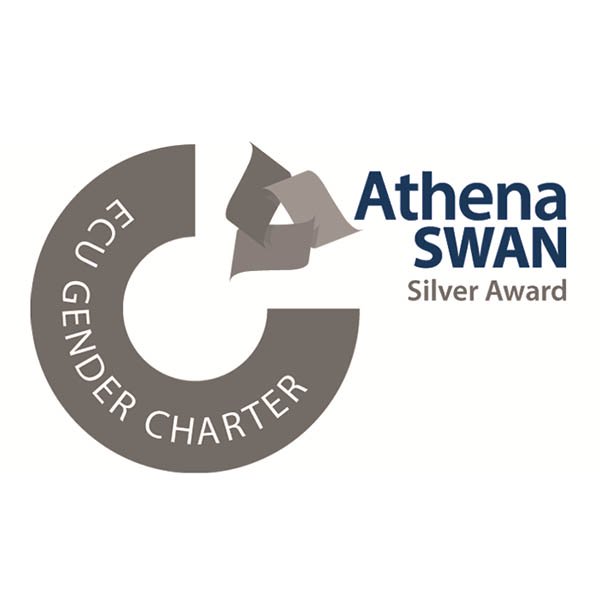BSc Hons Computer Science (Sri Lanka Institute of Information Technology)
ApplyKey facts
Apply: Available only to eligible students from SLIIT
Study mode and duration: full-time, 4 years (2 years at SLIIT, 2 years at Strathclyde)
Scholarship: 15% tuition fee scholarship from the university
Study with us
- join Strathclyde in year three and graduate with a degree in Computer Science after two years
- become part of our University community which is home to over 23,000 students from more than 100 countries
- English language classes available before and during your studies
- benefit from a degree structure that allows you to tailor your fourth-year studies to your particular interests
- develop an in-depth understanding of computer science required to develop sophisticated computing systems
- acquire excellent practical skills alongside theoretical understanding
- benefit from undertaking industry-linked projects
- your Special Advisor during your time studying at Strathclyde will be Professor Anil Fernando of Sri Lankan origin, who has strong links with many Sri Lankan universities
The Place of Useful Learning
UK University of the Year
Daily Mail University of the Year Awards 2026
Scottish University of the Year
The Sunday Times' Good University Guide 2026
Why this course?
Computer science demands and develops a challenging mix of skills and abilities. These include a deep understanding of the technology, creativity and imagination, logic and attention to detail, strong analytic and design skills combined with excellent communication skills and the ability to work as part of a team.
All our computer science degrees have strong practical and theoretical foundations. Our graduates not only understand new technologies but are able to influence their development.


What you'll study
The degree is a four-year programme, with Year 1 and 2 undertaken at SLIIT and Year 3 and 4 at the University of Strathclyde.
At the University of Strathclyde, each year’s curriculum consists of 120 credits including both compulsory and optional modules.
Year 3 has both compulsory and optional modules. You’ll study more specialised areas such as communications, how new programming languages can be designed, the variety of internal machine architectures, artificial intelligence, graphics, and the technologies behind web-based applications. You’ll also take part in a large group-based software development project.
In Year 4, you'll undertake a major individual practical project, along with four optional classes.
Major projects
Several companies work with us to develop student projects, either individual or group final-year projects that are suitable for both parties. Projects are supervised by members of academic staff with individuals from the sponsoring organisation providing occasional advice and feedback.
Facilities
We have three large undergraduate teaching laboratories, plus a restricted-access laboratory (primarily for fourth and fifth-year students). There are printers in each main lab. All departmental machines are linked by a high-speed local area network and operate under a single network file system so you can access your files from any of our machines.
Chat to a student ambassador
Want to know more about what it’s like to be a Science student at the University of Strathclyde? A selection of our current students are here to help!
Our Unibuddy ambassadors can answer all your questions about courses and studying at Strathclyde and offer insight into their experiences of life in Glasgow and Scotland.

Our department holds a Silver Athena Swan award, recognising our exceptional commitment and excellence in the advancement of gender equality.
Learning & teaching
Learning and teaching methods aim to help you gain knowledge and understanding as well as the development of intellectual skills (problem-solving and critical evaluation skills), practical skills (designing and implementing a software system, team-working skills) and transferable skills (investigative skills, presentation skills, report-writing skills, time management skills, independent learning skills).
Knowledge and understanding are gained through lectures and supported in tutorials or laboratories, and individual and group project work. You’ll be encouraged to read and research independently to help broaden your understanding of the subject.
You’ll develop intellectual skills through weekly laboratory or tutorial exercises. You’ll be set challenging problems while further coursework and group and individual projects will help you enhance your skills.
You’ll learn practical skills through lectures, tutorials, laboratory, coursework and project work.
Assessment
Your knowledge and understanding, intellectual, practical and transferable skills are tested through unseen written exams, laboratory submissions, coursework and project reports and presentations.

Compulsory classes
Building Software Systems
This class will extend and deepen your understanding of the analysis, design and implementation of software systems; to provide further experience in the activity of designing and implementing non-trivial systems; and to enable you to demonstrate practical competence in a group environment.
Your goal is the development in a group setting of significant systems from scratch aiming not just at any solution but a good solution, and to be introduced to more general Software Engineering topics.
Computer Systems & Concurrency
This class will allow you to develop a deeper understanding of highly concurrent hardware and software systems. The class will also further your knowledge of the need for, and the design and implementation of, those other vital hardware and software components of a concurrent system, namely multiprocessors and their interconnections, operating systems and networks.
The interactions between many of these components will be investigated by means of significant practical work that consolidates the lecture content in the context of:
- multiprocessor architectures
- concurrency
- protection and security
- networked and concurrent applications
Software developed in appropriate programming languages will form the basis of much of the practical work thus enabling the student to enhance their software design and implementation skills in this domain.
Optional classes
Functional Programming
Pre-requisites: Basic programming skills, as might be gained by taking the class Programming Foundations or a similar introductory programming class.
The aim is to provide you with skills in basic functional programming and experience in integrated deployment of those skills.
Mobile App Development
Pre-requisites: Advanced Programming
You should gain a good understanding of the issues in developing for mobile environments, approaches to handling these issues and skills in developing for a widespread mobile platform.
Foundations of Artificial Intelligence
Pre-requisites: Advanced Programming, Logic & Algorithms.
This class will help to give you a broad appreciation of the scale and nature of the problems within Artificial Intelligence and to a detailed understanding of some of the fundamental techniques used to address those problems.
Web Applications Development
Pre-requisites: Advanced Programming, User & Data Modelling.
This class will give you an understanding of the technologies used in the development of N-tier Internet-based applications.
Programming Language Definition & Implementation
The aim of this class is to provide familiarisation with the definition of programming language syntax and semantics, and the translation of these definitions into an implementation of a programming language.
In fourth year, you'll undertake a major individual practical project, along with four classes chosen from the optional section.
Compulsory class
Individual Project
This class will allow you to demonstrate practical and documentary competence. You'll also be expected to give a demonstration of your work.
Optional classes
Software Architecture & Design
This class aims to:
- enable you to understand the challenges of advanced software design and the issues associated with large-scale software architectures, frameworks, patterns and components
- develop your understanding of the tools and techniques that may be used for the automatic analysis and evaluation of software
Advanced Functional Programming
This class will provide you with further skills in functional programming and an appreciation of the mathematical structures which underpin powerful general programming concepts and techniques.
Theory of Computation
Building on the previous material in software development, you'll extend and formalise your abilities in the area of computational complexity.
Information Access & Mining
This class will allow you to understand the fundamentals of information access and information mining. The class will cover a range of techniques for extracting information from textual and non-textual resources, modelling the information content of resources, detecting patterns within information resources and making use of these patterns.
Embedded Systems
This class allows you to undertake the design and development process for embedded (dedicated) computer systems in relation to the environment in which they operate and to know how to integrate embedded hardware, software, and operating systems to meet the functional requirements of embedded applications.
Digital Forensics
This class allows you to understand issues associated with the nature of cybercrime, digital evidence, detection methods and proof, in a variety of digital forensic contexts, including computers, networks and portable digital devices.
Entry requirements
| Academic requirements | This degree programme is only available to students from the Sri Lanka Institute of Information Technology, following successful completion of:
|
|---|---|
| English language requirements | A minimum overall English language proficiency score of IELTS 6.0 (with no score below 5.5) is required. We also accept alternative English language qualifications, please contact us for further information. If you need additional support to meet our English language conditions, you may wish to consider our Pre-sessional courses in English. If you already meet our English language requirements and wish to undertake pre-sessional English classes, you can register for our three-week Online Module 3, which takes place between August and September. This is free of charge if you go on to register on the BSc (Hons) Computer Science degree. |
International students
We've a thriving international community with students coming here to study from over 140 countries across the world. Find out all you need to know about studying in Glasgow at Strathclyde and hear from students about their experiences.

Fees & funding
All fees quoted are for full-time courses and per academic year unless stated otherwise.
Fees may be subject to updates to maintain accuracy. Tuition fees will be notified in your offer letter.
All fees are in £ sterling, unless otherwise stated, and may be subject to revision.
Annual revision of fees
Students on programmes of study of more than one year (or studying standalone modules) should be aware that the majority of fees will increase annually.
The University will take a range of factors into account, including, but not limited to, UK inflation, changes in delivery costs and changes in Scottish and/or UK Government funding. Changes in fees will be published on the University website in October each year for the following year of study and any annual increase will be capped at a maximum of 10% per year. This cap will apply to fees from 2026/27 onwards, which will not increase by more than 10% from the previous year for continuing students.
| International | £28,600 |
|---|---|
| Visa & immigration | International students may have associated visa and immigration costs. Please see student visa guidance for more information. |
| Scholarships | All students will receive a 15% tuition fee scholarship from the university. |
Please note: All fees shown are annual and may be subject to an increase each year. Find out more about fees.
Careers
Demand for our computer science graduates is high and employment opportunities are varied, with good earning potential. You can choose from a career in software development, consultancy and business analysis, amongst many others..
Career opportunities are not limited to technology. The problem solving, creative and personal skills, you’ll develop are of benefit in their own right and much sought after by employers in other industries.
Glasgow is Scotland's biggest & most cosmopolitan city
Our campus is based right in the very heart of Glasgow. We're in the city centre, next to the Merchant City, both of which are great locations for sightseeing, shopping and socialising alongside your studies.
Apply
This degree programme is only available to eligible students from Sri Lanka Institute of Information Technology, following successful completion of two years of study on the BSc (Hons) in Information Technology Specialising in Software Engineering.
You'll typically receive your offer of admission within four weeks of applying.
Our dedicated Admissions Team are available to support you every step of the way.
Start date: Sep 2026
(3 year entry)

